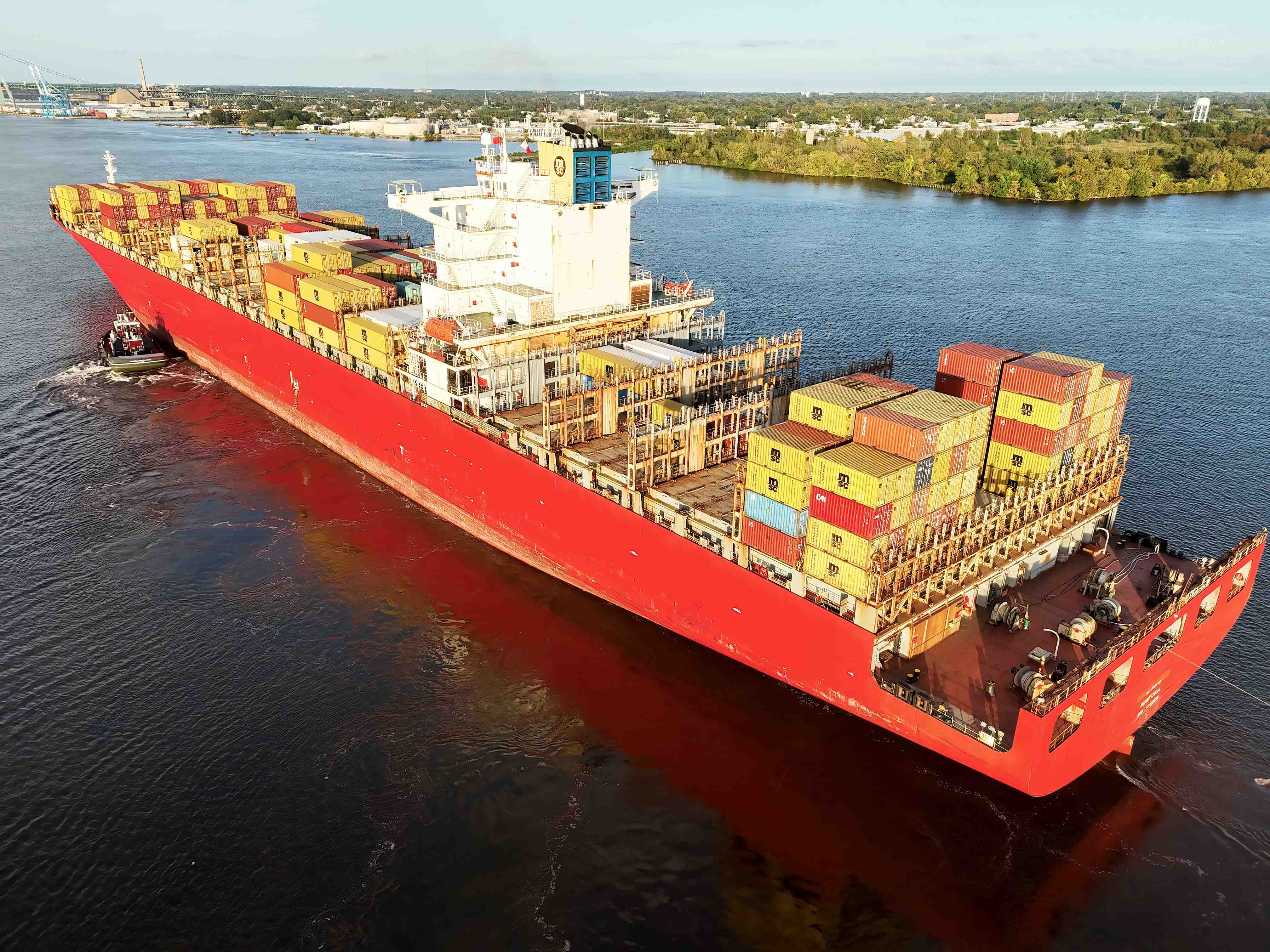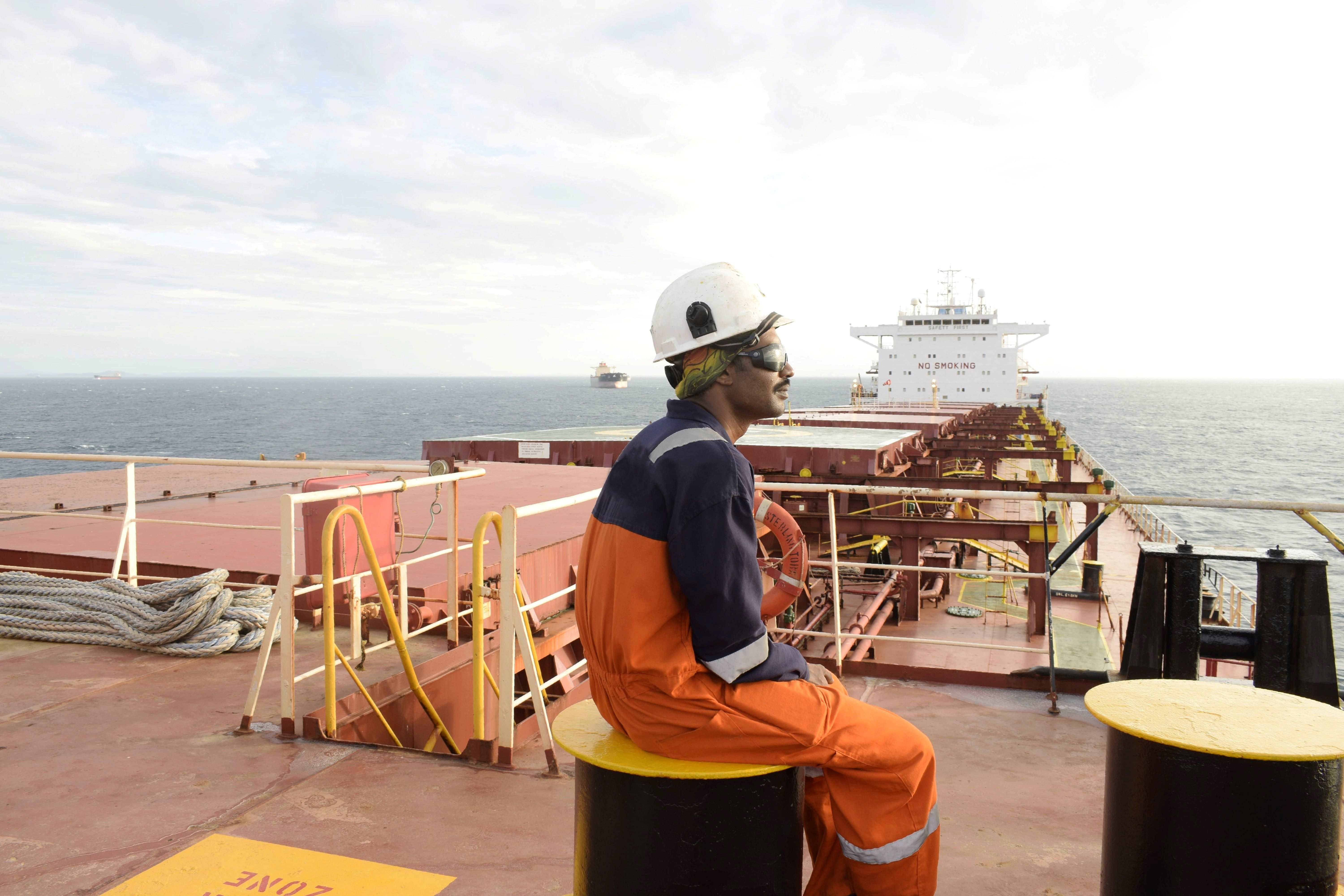Flagship summit drives momentum towards decarbonisation
Leadership Insights newsletter story
While diplomatic efforts focused on agreeing the nuances of the first-ever General Stocktake, under the Paris Agreement, the maritime industry plotted a course towards achieving the International Maritime Organization’s 2023 strategy to decarbonise shipping.

As the 28th Conference of Parties (COP28) negotiated a historic all-industry consensus to transition away from fossil fuels for the first time, shipping met to discuss the practical steps of achieving that zero-carbon future. Leaders from 60 organisations across the value chain congregated at the ‘Shaping the Future of Shipping: Delivering a Net Zero World’ summit, organised by a coalition of leading maritime industry bodies and coordinated by the ICS in partnership with the Emirates Shipping Association, to share insights and experiences, and identify priorities to address the climate crisis.
The high-profile event took place at the iconic Museum of the Future in Dubai, which offered the perfect visionary backdrop to catalyse further action on the global decarbonisation journey. A ministerial roundtable, with energy and maritime stakeholders in attendance, preceded the Summit to set the foundations for the discussions of the day.
As the midpoint between the 2015 Paris Agreement and 2030, and in light of the adoption of the International Maritime Organization’s (IMO) 2023 strategy, COP28 provided an opportunity to evaluate progress and discuss future actions. Maritime leaders focused on how shipping can create an effective regulatory framework, collaboration and partnerships, fuel availability and financing, and preparing seafarers for the transition to low and zero-carbon emissions ships.
Calls for a global regulatory framework
Addressing the flagship industry event during the Accelerating and Scaling Global Energy Transition panel, Bud Darr, Executive Vice President of Maritime Policy and Government Affairs at MSC, noted how industry perceptions have changed over the past five years, acknowledging that, “in this case it [regulation] can provide certainty and a level playing field.”
During his Refresh and Recharge segment, Jeremy Nixon, CEO, ONE, Singapore and Co-Chair, World Shipping Council, also urged IMO and governments to set the ground rules to enable industry to “move forward the market acceleration phase” of the transition. Panellists concurred that well-crafted regulations, to create certainty and help de-risk investment, were vital for the future of the industry.
While accepting the complexity of the challenge ahead for the maritime industry, not least because it is competing with other national decarbonisation policies and sectors for reliable sources of future fuels, incoming IMO Secretary General Arsenio Dominguez remained undaunted. He told the audience: “We are already carrying out the impact assessment on the fleet and on States in order to provide the necessary information for the Marine Environment Protection Committee meetings that will take place next year”.
Acknowledging IMO’s vital role in regulating shipping during her opening keynote address, Ms Melina Travlos, President of the Union of Greek Shipowners and Chair of the Board of Neptune Group of Companies, also emphasised that: “It cannot directly regulate fuel producers, suppliers, ports, charterers, or even shipbuilders, all whose contribution to decarbonisation is indispensable.” She continued: “Collaboration, determination, and commitment from all of us are key to successfully bringing effective decarbonisation within our grasp.”
Retrofitting and upskilling
As regulatory frameworks and cross-sectoral dialogue progress, the global fleet must stand ready to be able to run on green alternatives. Currently, just 21% of vessels on the order book have the potential to do so, according to UNCTAD’s Review of Maritime Transport 2023.
To expedite the process, Nick Brown, the CEO of Lloyd’s Register Foundation, stressed the importance of continuing research, and collaboration during the Short-term Steps to a Net-Zero Future panel. He also reminded delegates that, “every existing drydocking counts as we move forward”. Brown advocated retrofitting the fleet and improving operational practices to optimise efficiency rather than merely waiting for the vessels to be phased out. He noted there are: “Lots of simple, energy-saving devices which today’s crew can manage … although they all need to be adopted at [a] much greater pace and scale.”
Shipping’s crewing needs also took centre stage. During the People are the Fuel of the Future panel, Gerardo Borromeo, CEO PTC Group, The Philippines, said that “we need people of the right capability and mindset to work in a transforming and transformational environment” in order for shipping to achieve net zero emissions by 2050.
Shipping will need to attract and retain talent if it is to have the skilled workers required to achieve its emissions targets. Stephen Cotton, General Secretary of the International Transport Workers’ Federation, noted that the green transition could be a new starting point for shipping to address existing issues that impact short and long-term recruitment, training and retention.
“Should we replicate the industry, the training and the culture we’ve had in the past or take this opportunity to reflect on whether we could do it better?”, questioned Cotton. He pointed to the need to promote gender equality to enlarge the talent pool, inspire youth, offer defined career pathways and create a holistic approach to employment so that shore-based and sea-going employees enjoy similar terms and conditions. Cotton acknowledged the importance of standardisation and welcomed the Maritime Just Transition Task Force’s collaborative project to develop a ‘Baseline Training Framework for Seafarers in Decarbonization’.
External engagement key to future fuels
The summit showcased shipping’s determination to remain the greenest mode of transport (based on CO2 emissions per tonne per mile). In her opening address, Travlos emphasised that “shipping has outperformed most other industrial sectors when it comes to reducing carbon emissions, considering that it is a fossil fuel captive industry.”
However, during the Accelerating and Scaling Global Energy Transition panel, Professor Lynn Loo, Chief Executive Officer at the Global Centre for Maritime Decarbonisation (GCMD), in Singapore, advocated for greater engagement outside of shipping. “If we talk to adjacent sectors, and understand their needs, then there’s an opportunity to aggregate demand across sectors that also creates optionality for the fuel producers”, she said. This then reduces pressure to find the next offtake agreement in one specific sector, she noted.
The importance of cross-sectoral collaboration was flagged by speakers throughout the conference. Moderated by Jean-Francois Gagne, Head, Clean Energy Ministerial Secretariat, Canada – a partnership of 29 energy ministries – the Delivering Net-Zero Fuels for the World panel discussed how engagement can help to operationalise international agreements and break down barriers to clean energy transition. Gagne said: “This year, we are going to get triple renewal energy and double energy efficiency [targets] into negotiated text. That is progress and that is how the agenda can influence the ambition … What is needed is a transport and energy relationship … and luckily these discussions started about a year ago”, through the launch of fora such as the Clean Energy Marine Hubs (CEM) initiative.
CEM Hubs traction
Brazil was welcomed as the latest government signatory to the joint private sector and government CEM Hubs initiative. The initiative aims to de-risk investment and transform the energy-maritime supply chain. The overarching goal is to create the conditions to construct more production facilities near ports, demand centres and in the global south, and shape a greener shipping industry to safely transport the fuel to unlock the potential of the zero-emissions fuel value chain.
The Shaping the Future of Shipping: Delivering a Net Zero World summit helped to push forward vital discussions, expedite collaborations and keep the industry closely focused on the practical work and steps needed to achieve net zero emissions by 2050. In the words of incoming IMO Secretary General Arsenio Dominguez during his closing statement: “The world is changing. We all need to remember that whenever we are going to make our decisions, whenever there are risks that we have to take, that we are thinking of the future generations.”


